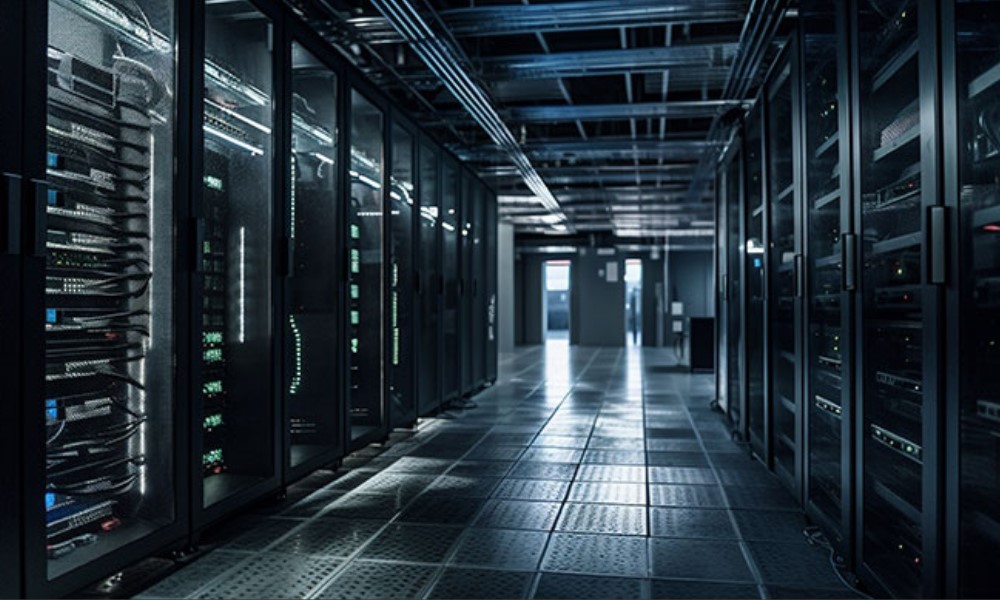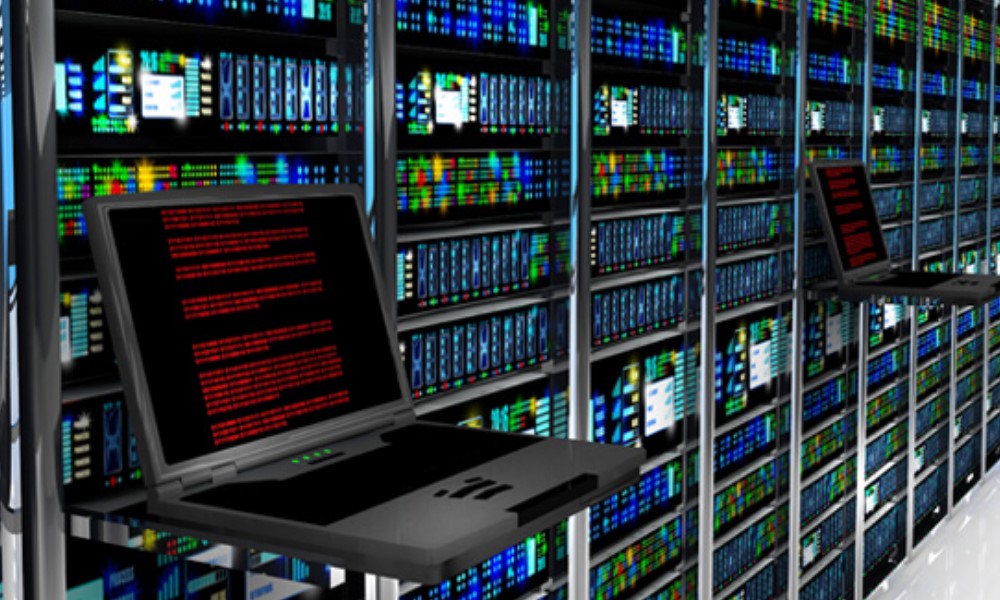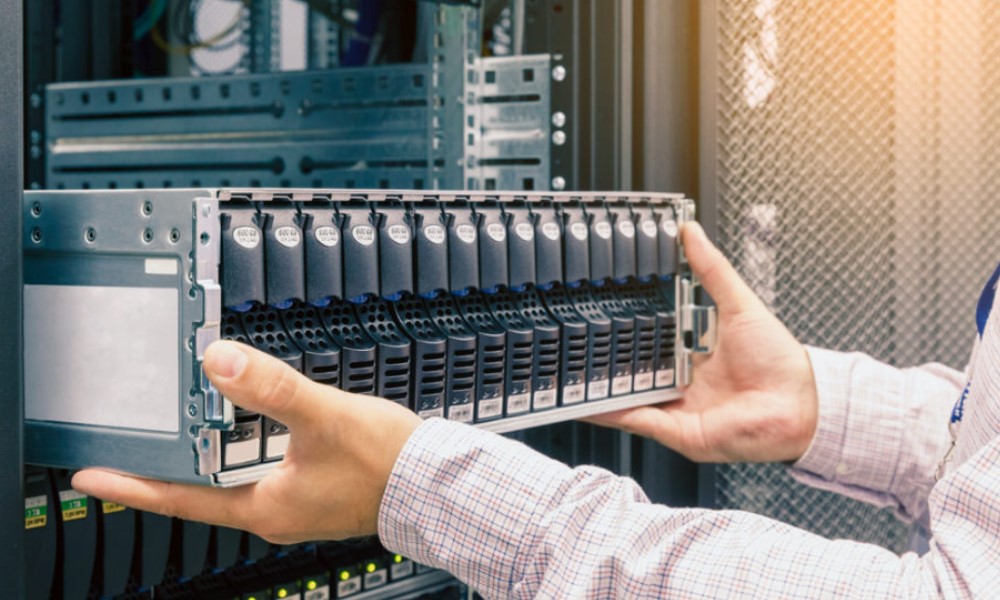Comprehensive Server Hardware Guide: Top Products and Effective Management
Understanding and selecting the right server hardware is crucial for ensuring optimal performance, reliability, and scalability for your business operations. In this guide, we will delve into the top Server Hardware products, their benefits, and effective management strategies to help you make informed decisions. Let’s get started!
What is Server Hardware?

Server hardware refers to the physical components that form the backbone of a server, which is a powerful computer designed to process and manage network resources and services. These components include processors (CPUs), memory (RAM), storage drives (HDDs or SSDs), motherboards, power supplies, and network interfaces.
Unlike standard consumer computers, server hardware is built to handle high workloads, offer robust performance, ensure reliability, and provide scalability for various applications. It is essential for running websites, databases, applications, and other services that require continuous availability and efficient data processing.
Quality server hardware supports advanced features like redundancy, fault tolerance, and enhanced security, making it crucial for business operations, data centers, and enterprise environments. Investing in the right server hardware ensures that your systems run smoothly, remain secure, and can scale with growing demands.
Benefits of Quality Server Hardware

Investing in high-quality server hardware is essential for businesses aiming to achieve optimal performance, reliability, and scalability in their IT infrastructure. Here are the key benefits of using top-tier server hardware:
1. Superior Performance
High-quality server hardware ensures superior performance, which is critical for handling intensive workloads and high-traffic applications. With powerful processors, ample RAM, and fast storage solutions, quality servers can process data more efficiently, reduce latency, and improve the overall speed of applications. This results in a smoother and faster user experience, essential for customer satisfaction and retention.
2. Enhanced Reliability
Reliability is a cornerstone of any robust IT infrastructure. Quality server hardware is less prone to failures and downtime, thanks to its durable components and advanced error-checking mechanisms. This reliability ensures that your business operations run smoothly without interruptions, reducing the risk of lost productivity and revenue.
3. Improved Scalability
As businesses grow, so do their IT requirements. High-quality server hardware is designed with scalability in mind, allowing you to easily upgrade components such as CPU, memory, and storage. This flexibility enables your infrastructure to grow with your business, accommodating increased workloads and user demands without needing a complete overhaul.
4. Robust Security
Security is a paramount concern for any organization. Quality server hardware often includes built-in security features such as advanced encryption, secure boot, and hardware-based intrusion detection. These features protect your data and applications from cyber threats, ensuring compliance with industry regulations and safeguarding your business’s reputation.
5. Cost Efficiency
While the initial investment in high-quality server hardware may be higher, the long-term benefits outweigh the costs. Reliable hardware reduces the need for frequent repairs and replacements, lowering maintenance costs. Additionally, the improved performance and efficiency can lead to lower energy consumption and operational costs over time.
6. Advanced Management Capabilities
Quality server hardware comes with advanced management tools that simplify administration and monitoring. These tools provide real-time insights into server performance, enable automated maintenance tasks, and facilitate remote management, saving time and reducing the complexity of managing IT infrastructure.
Top Server Hardware Products

To help you choose the best server hardware, here are detailed insights into some of the top products available in the market. We will cover their use cases, pros, cons, price, and features.
1. Dell PowerEdge R740
The Dell PowerEdge R740 is a powerful and versatile server ideal for various applications, from virtualization to software-defined storage.
- Use Case: Virtualization, Software-Defined Storage, Enterprise Applications
- Pros: High scalability, advanced management features, robust performance
- Cons: Higher cost, complex setup
- Price: Starting at $3,000
- Features: Dual Intel Xeon Scalable processors, up to 3TB of RAM, multiple storage options, integrated security features
2. HPE ProLiant DL380 Gen10
The HPE ProLiant DL380 Gen10 is known for its reliability, flexibility, and security, making it a top choice for data centers and enterprise applications.
- Use Case: Data Centers, Enterprise Applications, Virtualization
- Pros: High performance, flexible configuration, enhanced security
- Cons: Premium pricing, extensive setup process
- Price: Starting at $2,500
- Features: Intel Xeon Scalable processors, up to 6TB of RAM, HPE Smart Array Controllers, integrated security features
3. Lenovo ThinkSystem SR650
The Lenovo ThinkSystem SR650 offers excellent performance and scalability, suitable for diverse workloads and cloud environments.
- Use Case: Cloud Computing, Virtualization, High-Performance Computing
- Pros: Scalable architecture, energy-efficient, robust security
- Cons: Expensive upgrades, requires skilled management
- Price: Starting at $2,800
- Features: Dual Intel Xeon processors, up to 3TB of RAM, NVMe storage support, integrated security features
4. Cisco UCS C220 M5
The Cisco UCS C220 M5 is designed for performance and density over a wide range of applications, including virtualization and storage-intensive workloads.
- Use Case: Virtualization, Storage-Intensive Workloads, Enterprise Applications
- Pros: High density, energy efficiency, advanced management tools
- Cons: Higher initial cost, complex configuration
- Price: Starting at $2,600
- Features: Dual Intel Xeon Scalable processors, up to 3TB of RAM, Cisco Intersight for management, built-in security features
5. Supermicro SuperServer SYS-6029P-WTR
The Supermicro SuperServer SYS-6029P-WTR is known for its versatility and high performance, ideal for demanding applications and enterprise environments.
- Use Case: Enterprise Applications, High-Performance Computing, Virtualization
- Pros: Versatile, high performance, energy-efficient
- Cons: Requires technical expertise for setup, higher cost
- Price: Starting at $3,200
- Features: Dual Intel Xeon Scalable processors, up to 6TB of RAM, multiple storage options, robust security features
Detailed Comparison Table
| Product | Use Case | Pros | Cons | Price (Starting) | Features |
|---|---|---|---|---|---|
| Dell PowerEdge R740 | Virtualization, Software-Defined Storage | High scalability, robust performance | Higher cost, complex setup | $3,000 | Dual Intel Xeon Scalable processors, up to 3TB RAM, integrated security |
| HPE ProLiant DL380 Gen10 | Data Centers, Enterprise Applications | High performance, flexible configuration | Premium pricing, extensive setup | $2,500 | Intel Xeon Scalable processors, up to 6TB RAM, HPE Smart Array Controllers |
| Lenovo ThinkSystem SR650 | Cloud Computing, High-Performance Computing | Scalable architecture, energy-efficient | Expensive upgrades, skilled management required | $2,800 | Dual Intel Xeon processors, up to 3TB RAM, NVMe storage support |
| Cisco UCS C220 M5 | Virtualization, Storage-Intensive Workloads | High density, energy efficiency | Higher initial cost, complex configuration | $2,600 | Dual Intel Xeon Scalable processors, up to 3TB RAM, Cisco Intersight |
| Supermicro SuperServer SYS-6029P-WTR | Enterprise Applications, High-Performance Computing | Versatile, high performance | Requires technical expertise for setup, higher cost | $3,200 | Dual Intel Xeon Scalable processors, up to 6TB RAM, robust security |
Benefits of Using Specific Server Hardware Products
Dell PowerEdge R740
- Scalability: Easily scale resources to meet growing business demands.
- Performance: Powerful processors and ample RAM ensure optimal performance for virtualization and storage solutions.
- Management: Advanced management tools simplify server administration and monitoring.
HPE ProLiant DL380 Gen10
- Reliability: Known for its robustness and reliability, making it ideal for critical applications.
- Security: Enhanced security features protect against data breaches and cyber threats.
- Flexibility: Wide range of configuration options to suit various business needs.
Lenovo ThinkSystem SR650
- Energy Efficiency: Designed to reduce energy consumption while maintaining high performance.
- Scalability: Supports significant upgrades in memory and storage for future growth.
- Security: Integrated security features ensure data protection and compliance.
Transactional Information: How to Buy Server Hardware
Purchasing server hardware involves several critical steps to ensure you get the right components for your business needs. Here’s a detailed guide to help you navigate the process:
1. Identify Your Requirements
Before purchasing, clearly define your server needs:
- Performance: Determine the processing power, memory, and storage required based on your workloads.
- Scalability: Consider future growth and the ability to upgrade components.
- Budget: Establish a budget that balances cost and performance.
2. Research and Compare Products
Investigate the top server hardware products from leading manufacturers such as Dell, HPE, Lenovo, Cisco, and Supermicro. Compare their features, performance, scalability, and prices to find the best match for your requirements.
3. Visit Manufacturer Websites
Go to the official websites of the manufacturers:
- Dell PowerEdge R740
- HPE ProLiant DL380 Gen10
- Lenovo ThinkSystem SR650
- Cisco UCS C220 M5
- Supermicro SuperServer SYS-6029P-WTR
4. Choose a Configuration
Select the appropriate server configuration:
- Processors: Choose the number and type of CPUs.
- Memory: Decide on the RAM size and type.
- Storage: Select the type (HDD or SSD) and capacity.
- Additional Features: Consider any other features such as RAID controllers, network interfaces, and power supplies.
5. Request a Quote or Purchase Online
For large orders, request a quote to get the best pricing. Many manufacturers offer online purchase options for straightforward transactions.
6. Make Payment
Complete the purchase using the manufacturer’s secure payment methods. Some providers offer financing options to spread the cost over time.
7. Delivery and Setup
Once your order is confirmed, the server hardware will be shipped to your location. Follow the manufacturer’s setup guidelines for installation. For complex setups, consider professional installation services.
8. Post-Purchase Support
Ensure you have access to support services for troubleshooting, maintenance, and upgrades. This includes warranties, technical support, and service agreements.
Use Cases and Problems Solved by Server Hardware
E-commerce Sites
Use Case: E-commerce platforms require robust server hardware to handle high traffic, ensure fast load times, and secure transactions.
Problems Solved:
- Performance Issues: High-performance servers ensure quick page loads and seamless transactions, improving customer experience.
- Security Concerns: Advanced security features protect sensitive customer data and transaction details.
- Scalability Needs: Scalable hardware can handle traffic spikes during peak sales periods, such as Black Friday.
Data Centers
Use Case: Data centers host numerous applications and services, requiring reliable and scalable server hardware.
Problems Solved:
- Resource Management: High-capacity servers manage large volumes of data and applications efficiently.
- Reliability: Ensures continuous operation with minimal downtime, crucial for data center operations.
- Flexibility: Supports various applications and services, from cloud computing to database management.
How to Buy and Where to Buy
To buy server hardware, follow these steps:
- Visit the Manufacturer’s Website:
- Dell PowerEdge R740
- HPE ProLiant DL380 Gen10
- Lenovo ThinkSystem SR650
- Cisco UCS C220 M5
- Supermicro SuperServer SYS-6029P-WTR
- Choose a Configuration:
- Select the configuration that matches your requirements, including CPU, RAM, storage, and additional features.
- Request a Quote or Purchase Online:
- You can request a quote for large orders or purchase directly through the manufacturer’s online store.
- Payment:
- Complete the purchase using your preferred payment method. Many manufacturers offer financing options.
- Delivery and Setup:
- Once your order is confirmed, the server hardware will be shipped to your location. Follow the manufacturer’s setup guidelines or seek professional installation services.
Conclusion
Investing in the right server hardware is essential for ensuring optimal performance, reliability, and scalability of your business operations. High-quality server hardware like the Dell PowerEdge R740, HPE ProLiant DL380 Gen10, Lenovo ThinkSystem SR650, Cisco UCS C220 M5, and Supermicro SuperServer SYS-6029P-WTR provide dedicated resources, advanced security features, and robust performance to meet diverse business needs.
These servers are ideal for various applications, from virtualization and high-performance computing to e-commerce and data centers. By understanding the benefits and features of these top products, you can make informed decisions that align with your specific requirements.
Explore your options, consider your business’s growth potential, and invest in server hardware that will support your operations efficiently and securely. Ready to take the next step? Visit the manufacturers’ websites to find the best server hardware for your needs and ensure a solid foundation for your business’s future.
FAQs
- What is server hardware?
- Server hardware refers to the physical components that make up a server, including processors, memory, storage drives, and network interfaces.
- Why is quality server hardware important?
- Quality server hardware ensures better performance, reliability, scalability, and security for your business operations.
- How do I choose the right server hardware?
- Consider factors such as performance requirements, scalability, security features, and budget when selecting server hardware.
- Can I upgrade my server hardware?
- Yes, many server hardware products offer scalability options, allowing you to upgrade components like RAM and storage as needed.
- Where can I buy server hardware?
- You can purchase server hardware from manufacturers’ websites like Dell, HPE, Lenovo, Cisco, and Supermicro.